Photographs: Rediff Archive Vanita Kohli-Khandekar in Mumbai
Subhash Chandra is looking tired and, worse still, bored.
As I settle into his freezing cold office I wonder how this will go.
Chandra, 60, is usually a fun interviewee.
The grand old man of Indian media doesn't hesitate to call a spade a spade.
More importantly, unlike other chief executive officers, he has no qualms about admitting corporate mistakes.
But the thing that has earned him the admiration of everyone, even his enemies, is his vision.
As a trader Chandra bought space on a decrepit Chinese satellite in the early nineties when the reigning media barons of those days, the Jains of the Times Group, didn't think it was worth their while.
. . .
Meet India's first television moghul
Photographs: Reuters
Zee TV, India's first non-state owned Hindi channel, was launched in 1992.
He set up, under the Essel Group, India's first leisure park (Esselworld), the first electronic lottery company (Playwin), the first DTH operation (Dish TV), launched a newspaper in Mumbai with Dainik Bhaskar (DNA) and so it goes.
At Rs 5,028 crore (Rs 50.28 billion), the 19-year-old Zee is now India's largest media group by revenues along with the 173-year-old the Times Group.
It is for this ability to peer into the future that the International Academy of Television Arts and Sciences will award him the International Emmy Directorate Award in New York later this year.
So what is he up to these days, I ask, taking a sip of my water.
. . .
Meet India's first television moghul
Image: Essel group and Bhushan Steel bought a 250-acre plot in Kharghar Kharghar, Navi Mumbai."Well I am trying to fix a gold refinery we bought in Maharashtra, developing an infrastructure business related to solid municipal waste, looking at our wellness and lifestyle channel for the US. . ." he replies.
The Essel Group has a whole lot of other interests including ones in education and flexi-packaging.
It is doing some pioneering work in primary schooling in Gujarat in a public-private partnership.
This is stuff close to Chandra's heart, clearly.
He holds forth on it for a bit.
What the world knows Chandra for, however, is his media mind. Doesn't he miss the industry?
Wouldn't he like to jump into this crazy game all over again?
. . .
Meet India's first television moghul
"I never ran the company (Zee), I was hands-on for only six months," he says.
Maybe, but he has always been the face of the company. For years he kept a close eye on what was happening.
In fact, in one famous period he lost about half-a-dozen CEOs rather quickly because they couldn't deal with his style.
Would he do Zee differently now?
"I wouldn't do it," he laughs.
A pause later he adds, "I don't think our concepts were wrong, all of them have been right, but they have not always been executed well.
ICL (Indian Cricket League meant to be another IPL) is a classical case of execution lacunae. So is Wire and Wireless India Ltd (the group's cable company)."
. . .
Meet India's first television moghul
Image: Naved-ul-Hasan celebrates the wicket of Andre Fletcher at an Indian Cricket League match.Photographs: Reuters
What does he make of the industry today? Chandra reckons there is too much structural anomaly.
"People think it is increasing healthily, but I think it is growing at half the pace," he says. For those who came in late, the Rs 30,000 crore (Rs 300 billion) broadcasting business has been in trouble for some time now.
A structural logjam ensures that digitisation and, therefore, pay revenues don't take off while ad revenue growth has been slowing.
On the other hand, costs, especially distribution, have been rising. Therefore, margins have halved to about 13 per cent over the last five years.
Isn't it evident that only a good independent regulator can deal with this mess, that this is not a 'market forces' problem?
Chandra has come alive by now, his face aglow and his mind fully focused on the conversation.
Clearly this man loves the media business.
. . .
Meet India's first television moghul
"We are part of a regulator whose main job is telecom; they approach this with a telecom industry mindset. So even now we have the same cable rates, they think that is good for the consumer," he says.
Why isn't it?
"Because it is bad for the industry. There is no innovation in programming, technology or delivery vehicles, no newness, we are copying foreign formats."
He, of all the people, should not be complaining about this. Zee was right there when it all started.
When cable operators were under-declaring, most broadcasters chose to negotiate more 'declarations' rather than deal with the root cause -- the lack of digitisation.
Why was there no mass lobbying, no industry initiative, either for digitisation or for some incentivising legislation?
. . .
Meet India's first television moghul
Now Chandra is in his element. He tears into my argument.
"The question is not of lobbying.
"It was a question of the broadcaster, multi-system operator or signal distributor and cable operator sitting down and working together.
"We are always at loggerheads with each other -- broadcasters call cable operators thieves and they call us thieves. The industry as a whole should work together," he says.
Suddenly he relaxes.
"This (media) industry should have an independent regulator. It influences the masses far too much. When I see my shows, I ask my programming guys 'Is this what people want to watch?' this is depressing.
"When I see some of the laughter shows on some channels, I wonder how a father and daughter can sit and watch it. We need a regulator who will understand both content and business issues."
. . .
Meet India's first television moghul
To be fair to Chandra, Zee did have some nice shows to start with.
For anyone old enough to remember there were, among others, Tara and Banegi Apni Baat (which discovered talents like Irfan Khan and Shefali Shah).
That still doesn't tell me why Zee, India's first home-grown broadcast network, built on home-grown formats like Antakshari, did not take that initiative to bring changes.
Does this industry, and that includes Zee, lack leaders? He doesn't hesitate for a second before answering; "People look at each other with a different mindset.
"If Subhash Chandra wants to take the lead, they will say 'they are successful they can do anything.' The Marans [of Sun TV] are the other successful group, but they are an island of their own. I don't remember them attending a single industry forum.
. . .
Meet India's first television moghul
"So it is lack of leadership and lack of desire on the part of the industry to get together."
"I hold myself responsible also. Though we were pioneers we haven't done enough to steer regulation in favour of industry," he adds.
He could still do it, but Chandra shrugs off that thought. What he thinks might work is this new distribution partnership between Star and Zee.
In May this year, Star India and Zee, which is now run by Chandra's son Punit Goenka, formed a joint-venture company with their distribution arms.
Chandra reckons it is good for the companies and will also bring cable operators and MSOs on the same side.
It is difficult to miss the irony.
More than 12 years ago, in 1999, Star and Zee had been joint venture partners for almost seven years.
. . .
Meet India's first television moghul
Image: Rupert Murdoch.Photographs: Mario Anzuoni/Reuters
In that year they broke up very publicly and bitterly and Chandra paid a reported $322 million to Star to buy its share in the joint venture.
Star invested much of that money into rejuvenating its India operations with shows such as Kaun Banega Crorepati.
It then went on to annihilate Zee and every other broadcaster and create a hegemony on the broadcasting market that lasted for more than six years.
That, incidentally, is the amount of time Zee took to bounce back after a string of disastrous shows.
If the man who signed the divorce papers with Star thinks that getting back with the Rupert Murdoch-owned company is good for the industry, change must really be around the corner.

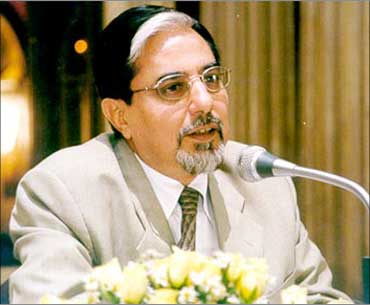
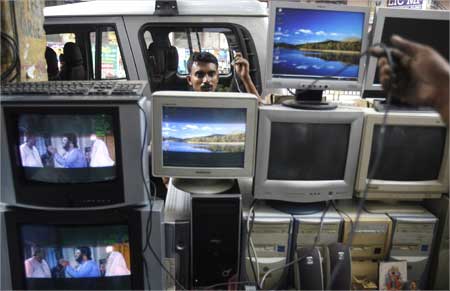
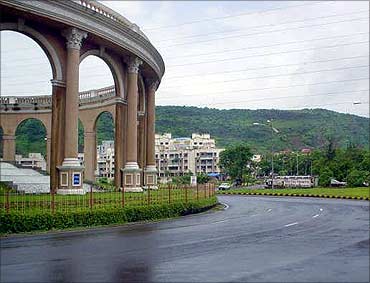
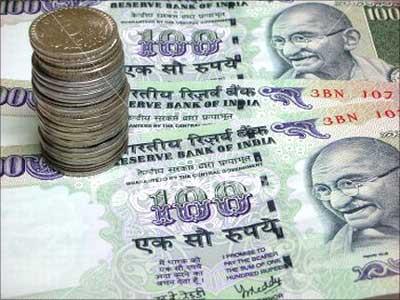
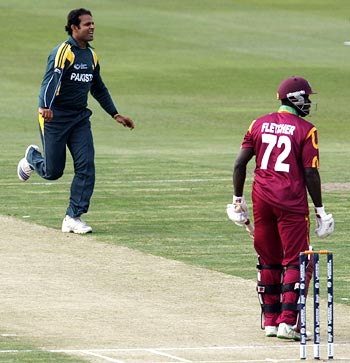

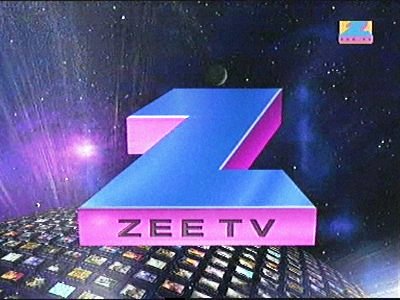

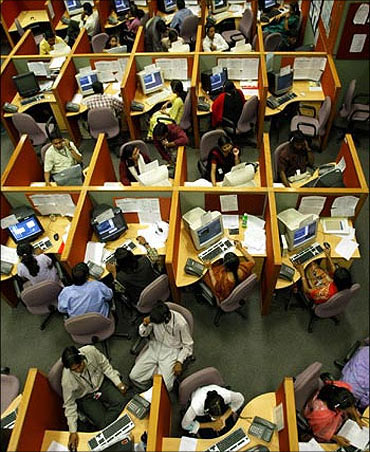
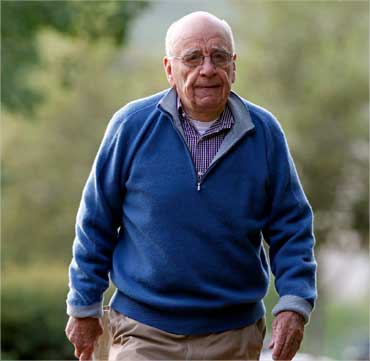

article